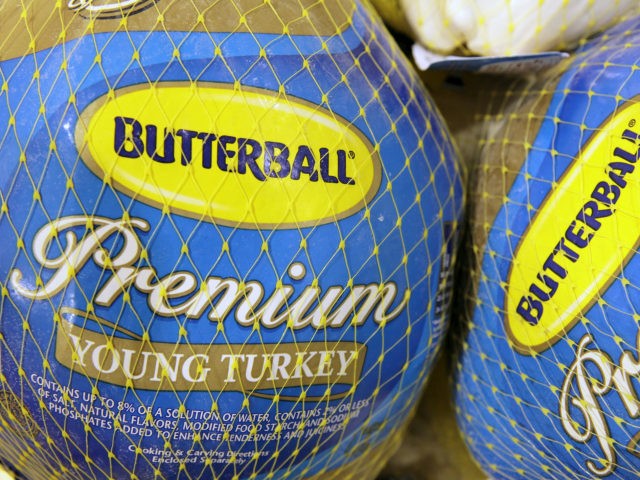For more than 30 years, Butterball has been fielding calls from consumers about its turkeys during the holiday season. This year is no exception despite all the changes people are making in fear of contracting the coronavirus.
“It all began in 1981 when six home economists worked the phones that holiday season to answer 11,000 turkey-cooking questions,” the Butterball website says. “Since then the Turkey Talk-Line has grown in both the number of calls answered and experts responding.”
The Turkey Talk Line is 1-800-288-8372 and is open from 6:00 a.m. to 6:00 p.m. on Thanksgiving and from 9:00 a.m. to 7:00 p.m. on a daily basis.
“Butterball has also added the option of texting,” the Rutherford Source in Rutherford, Tennessee reported. Now through Thanksgiving, you can text the Butterball Turkey Talk-Line experts 24/7 at 844-877-3456.”
Here are the nine most frequently asked questions, which include an explanation about giblets and assurance that turkeys are raised and harvested humanely:
1. How do I thaw a Turkey?
Butterball experts suggest that you thaw your turkey one week before Thanksgiving.
2. What can I do to prevent a dry turkey?
Check the date – make sure your frozen turkey was purchased within 2 years or make sure your fresh turkey is not beyond the sell-by-date as both of these factors could impact the quality of your turkey.
Storing turkey – make sure to keep your frozen turkey in a deep freeze rather than a frost free refrigerator as freezer burn could result in a dry turkey. In addition, make sure the packaging does not have any tears or holes.
Thaw properly – how you thaw your turkey can make a big impact. There are a couple of different ways to do so.
Cooking process – cooking at a high temperature and too long can result in a dry turkey. Butterball has a variety of ways to cook a turkey, visit their How To section to learn about different cooking methods.
3. What type of thermometer is best for cooking a turkey?
There are a variety of different meat thermometers and they range in price. The most important factor when choosing is accuracy. Test your thermometer before using in your turkey to ensure it gives you an accurate temperature read to reduce the risk of over or under-cooking. When checking for doneness, always use a properly calibrated meat thermometer which should read at least 165 degrees in the breast and 180 degrees in the thigh.
4. What are giblets?
Giblets are the heart, liver, and gizzard of the turkey. These parts should be removed from the turkey cavity before cooking but can be used to make rich, flavorful gravy.
5. Are Butterball turkeys gluten-free?
All of the Butterball products are gluten-free except for Butterball Stuffed Turkey (bread stuffing) and Butterball Frozen Meatballs. For our products that are packaged with gravy packets, the gravy packets are gluten-free as well. The gravy contains rice flour instead of wheat flour and the modified food starch is corn-based.
6. Do Butterball products have MSG?
Butterball, LLC does not add MSG to any of its products. According to U.S.D.A. regulations, MSG must be listed in the ingredient statement if it is add to food products.
7. How do I determine what size turkey to buy?
Check out the Butterball calculator to determine the Butterball® Turkey size range to purchase for your holiday meal.
8. What is the sell-by date on the Butterball turkey?
As a general rule, you can keep your frozen turkey in the freezer in its original packaging for up to two years.
9. Does Butterball Turkey Treat its Turkeys Humanely?
Animal care and well-being is central to Butterball. They lead the industry in animal care and well-being standards with ongoing efforts.
They have established an independent Animal Care and Well-Being Advisory Council made up of well-known animal care experts. Strengthen employee training by identifying and implementing best practices.
Implement audits by American Humane, a highly recognized independent third party that audits their facilities and practices according to peer-reviewed, science-based criteria.
Follow Penny Starr on Twitter

COMMENTS
Please let us know if you're having issues with commenting.